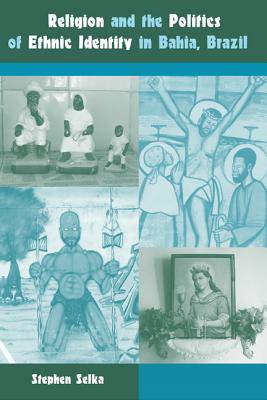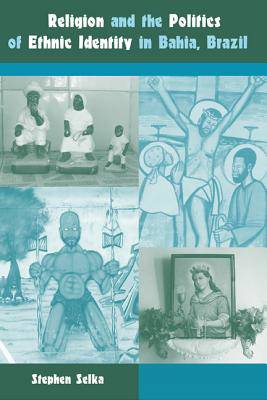
- Retrait gratuit dans votre magasin Club
- 7.000.000 titres dans notre catalogue
- Payer en toute sécurité
- Toujours un magasin près de chez vous
- Retrait gratuit dans votre magasin Club
- 7.000.0000 titres dans notre catalogue
- Payer en toute sécurité
- Toujours un magasin près de chez vous
Description
"A brave work that helps relieve the issue of race and religion in Brazil from the heavy weight of ideology it all too often carries, while advancing the discussion of Brazilian racial politics to a new level of sophistication."--John Burdick, Syracuse University
"A fascinating look at the role religion plays in struggles over identity and racism in Brazil. This is a richly detailed, theoretically sophisticated, clearly written, and important exploration of the ways in which Catholicism, Candomble, and Evangelical Protestantism figure into resistance, struggle, and the construction of Afro-Brazilian identity."--Lindsey Hale, The University of Texas, Austin
Brazilians of African descent draw upon both Christian and African diasporic religions to construct their racial identities in a variety of intriguing ways. Focusing on the Reconcavo region of northeastern Brazil--known for its rich Afro-Brazilian traditions and as a center of racial consciousness in the country--Stephen Selka provides a nuanced and sophisticated ethnography that examines what it means to be black in Brazil.
Selka examines how Evangelical Protestantism, Candomble (traditional Afro-Brazilian religion), and Catholicism--especially progressive Catholicism--are deployed in discursive struggles concerning racism and identity. In the process, he provides a model of wedding abstract theory with concrete details of everyday life.
Revealing the complexity and sometimes contradictory aspects of Afro-Brazilian religious practices and racial identity, Selka brings a balanced perspective to polarized discussions of Brazilian racial politics.
Stephen Selka is assistant professor of anthropology at Tulane University.
Spécifications
Parties prenantes
- Auteur(s) :
- Editeur:
Contenu
- Nombre de pages :
- 192
- Langue:
- Anglais
- Collection :
Caractéristiques
- EAN:
- 9780813033877
- Date de parution :
- 01-03-09
- Format:
- Livre broché
- Format numérique:
- Trade paperback (VS)
- Dimensions :
- 152 mm x 229 mm
- Poids :
- 281 g

Les avis
Nous publions uniquement les avis qui respectent les conditions requises. Consultez nos conditions pour les avis.






